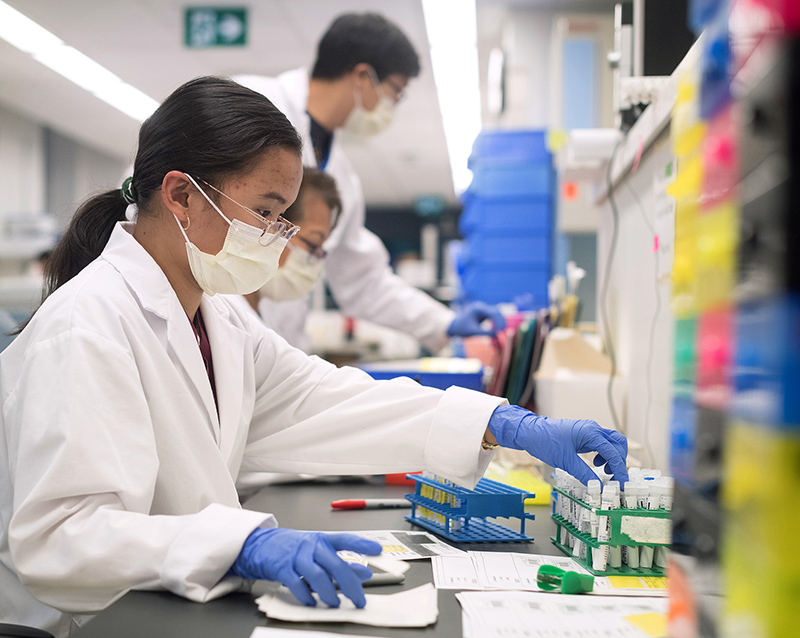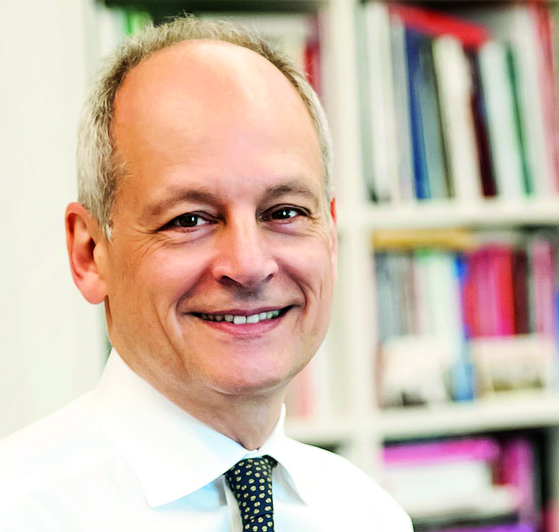I expect we will all be glad to see the end of the year 2020. But I would like to draw your attention to three very hopeful developments that have emerged in this uniquely difficult time, all centered on the University of Toronto.
First, members of the U of T community are in the vanguard of the fight against COVID-19 locally, nationally and globally.
Turn on the evening news or check your phone at any time – you’ll see experts from across the university helping to inform the public and to shape public policy. Look to the front lines, and you’ll witness University of Toronto faculty, staff, students and alumni doing life-saving work, 24-7.
And step into so many of the labs and departments across our three campuses, where you’ll observe world-leading research and innovation on every aspect of the pandemic (please see “The Search for a Vaccine”). According to a paper in the journal Scientometrics, in the first six months of the year, U of T and its partner hospitals comprised the world’s ninth-largest source of scientific literature on COVID-19.
At the same time, the world has been reminded of another seemingly intractable plague – that of systemic racism, and especially anti-Black racism, in our society and institutions.
The National Dialogues and Action for Inclusive Higher Education and Communities is an initiative co-ordinated by Professor Wisdom Tettey, vice-president of U of T and principal of U of T Scarborough, and Karima Hashmani, executive director of U of T’s office of equity, diversity and inclusion (please see “Out of Action, Comes Hope”). More than 60 colleges and universities across Canada have joined the partnership, and some 3,000 leaders took part in discussions this fall. The outcome will be a sector-wide approach, to be articulated in the forthcoming Scarborough National Charter on Anti-Black Racism and Black Inclusion in Canadian Higher Education: Principles, Actions and Accountabilities.
The charter aims to go beyond articulating principles to inspire concrete actions. And real progress does seem to be within our grasp as a result of this first-of-its-kind initiative, which began at U of T.
Finally, I would like to highlight the landmark gift of $250 million from James and Louise Temerty – the largest donation U of T has ever received, and the single greatest act of philanthropy in the history of our country (please see “A New Era in Medicine”).
It confirms and strengthens the Temerty Faculty of Medicine as a global leader in human health and health care for generations to come. It too is a tremendously powerful source of hope, at a time when we need it more than ever.
The U of T community has responded with incredible resilience, creativity and leadership in facing the unprecedented challenges of the past year. Whatever 2021 holds, one thing is clear: our mission has never been more deeply relevant to the well-being of individuals and the success of our society.







No Responses to “ Hope in a Difficult Time ”
Professor Gertler's thoughts are very welcome. I can speak as a child survivor of the Second World War in England, during which time we were buoyed by the optimism of better days ahead. The first Canadians I met were the brave soldiers of Princess Patricia's Light Infantry from Hamilton, Ontario, where by coincidence, I found myself years later -- as a postdoctoral fellow in chemistry at McMaster University. I came to U of T's chemistry department in 1961, and in 1965 became principal of what is now UTM. In my experience, the values of patience, perseverance, good humour, and kindness are essential tools in surviving difficulty in order to enjoy the better times that are surely to come.
My husband is involved with a group who have developed an app to screen and eventually diagnose Covid-19. Please go to Voicehealth.ca for more information. There is even more hope!